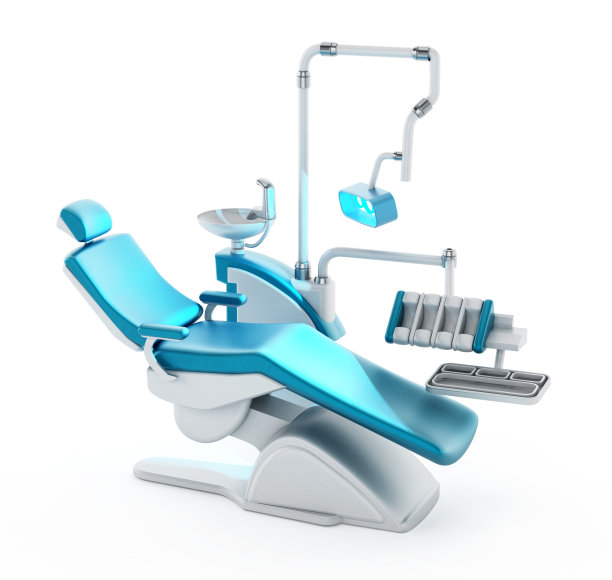Summary: Dental fillings are essential procedures for maintaining oral health, but ensuring a successful experience requires specific precautions. This article outlines crucial steps to prepare for the filling procedure, understand post-treatment care, recognize potential complications, and maintain oral hygiene for optimal health after treatment. Each section provides valuable insights to enhance the overall experience and minimize discomfort, ensuring that patients leave the dental office with a smile.
1. Preparing for the Dental Filling Procedure

Preparation plays a critical role in the success of a dental filling. First, ensure that you choose a reputable dentist with experience in performing fillings. Research local dental practices, read reviews, and seek recommendations to find a qualified professional who meets your needs. This initial step builds trust, ensuring that you feel comfortable during the procedure.
Second, communicate openly with your dentist about any concerns, fears, or medical conditions. Providing complete information about your dental history and current health will help the dentist tailor the treatment plan to your specific needs. This open dialogue fosters a solid relationship and sets the stage for a successful filling experience.
Lastly, consider arranging transportation to and from the dental office, especially if sedation will be used during the procedure. Having someone assist you ensures that you can relax before and after your appointment without worrying about navigating home on your own, which contributes to a more positive overall experience.
2. Understanding Post-Treatment Care for Fillings
After receiving a dental filling, it is vital to follow post-treatment care instructions provided by your dentist. Typically, the first few hours following the procedure are crucial. Avoid eating or drinking until the anesthesia has worn off to prevent biting your cheek or tongue accidentally. Stick to soft foods for the first day to avoid discomfort on the treated tooth.
Additionally, pay attention to any sensitivity in the area of the filling. Some patients may experience increased sensitivity to hot or cold temperatures for a few days. Avoid extremes in temperature during this time, and consider taking an over-the-counter pain reliever if needed. Persistent discomfort should be discussed with your dentist, as it may indicate issues with the filling.
Furthermore, maintaining proper oral hygiene is essential after receiving a filling. Gently brush and floss the area to remove any debris without causing damage to the filling. Establishing a consistent oral care routine will help extend the life of the filling and support overall oral health.
3. Recognizing Potential Complications from Fillings
While dental fillings are generally safe, it’s crucial to recognize potential complications that may arise. One common issue is infection, which may occur if bacteria enter the tooth or surrounding area. Symptoms of infection include swelling, severe pain, and fever. If you experience these symptoms, contact your dentist promptly for evaluation and treatment.
Another possible complication is the filling coming loose or falling out. Factors such as excessive biting force or wear and tear can lead to this issue. If this happens, it’s essential to avoid chewing on that side of your mouth and visit your dentist as soon as possible to have it repaired or replaced.
Finally, be aware of the possibility of an allergic reaction to the materials used in the filling. While rare, symptoms may include itching, swelling, or rash in the mouth. If you notice any unusual reactions following your appointment, inform your dentist immediately to discuss alternative materials or treatment solutions.
4. Maintaining Oral Health After Treatment
To optimize oral health post-treatment, make regular dental check-ups a priority. Visiting your dentist at least twice a year ensures that any potential issues are detected and addressed early. These visits allow for professional cleaning and examination to help maintain the integrity of your fillings and overall oral health.
Additionally, adopting a balanced diet promotes oral health. Limit sugary snacks and beverages, as sugar can contribute to tooth decay. Instead, focus on incorporating foods rich in calcium and phosphorus which can strengthen tooth enamel. Drinking plenty of water throughout the day also helps rinse away food particles and bacteria, further supporting oral hygiene.
Lastly, practice good oral hygiene at home. Brush your teeth twice a day with fluoride toothpaste and floss daily to keep your mouth clean. Consider using an antimicrobial mouthwash to further reduce bacteria in your mouth. Consistent and effective dental care will not only ensure the longevity of your fillings but also enhance your overall oral health.
Summary:
Ensuring a successful dental filling experience begins with thorough preparation and understanding of post-treatment care. Recognizing potential complications and maintaining optimal oral health is equally important. By adhering to these essential precautions, patients can enjoy a smooth recovery and an improved oral health status. Prioritizing dental health through continuous care will lead to a brighter, healthier smile.
This article is compiled by Vickong Dental and the content is for reference only.
Vickong Dental
Vickong Dental is a large medical group established in Hong Kong in 2008 by professors from well-known medical universities in Guangdong and Hong Kong, as well as medical doctors from key national '985' universities (including Master's supervisors and senior professors). The chain of branches brings together expert dentists with PhDs and Master's degrees from Hong Kong and Mainland China, committed to providing high-quality dental treatment.
"Vickong Dental Practices the University Motto of 'Healing and Serving Society,' with a Stable Operation for Sixteen Years. It Has Been honored with Hong Kong Enterprise Leaders's Choice,' and is a Global Trusted Implant Center for the Nobel Implant System. Recommended by Hong Kong Metro Broadcast and Guangdong Television, it Serves Customers from Over Thirty Countries and Regions, Gaining the Trust and Favor of Citizens from the Guangdong-Hong Kong-Macau Greater Bay Area and Surrounding Cities.

Thousands of customers' unanimous praise
The most recognized and highly recommended dental service by customers in the Guangdong-Hong Kong-Macau Greater Bay Area
We Ensure You Receive Detailed Care and Attention Here
Hong Kong standards, Shenzhen prices, Your Trusted English-speaking dentists

Vickong Dental Medical-Grade Instrument Disinfection Process
Vickong Dental Medical-Grade Instrument Disinfection Process

Vickong Dental Chain: A Warm and Comfortable Environment for Treatment






Appointment Hours

Q&A
Why choose Vickong Dental?
Vickong Dental practices the university motto 「Medicine to Benefit Society」, with each branch bringing together highly qualified dentists with doctoral and master’s degrees from Hong Kong and the Mainland, and has maintained seventeen years of steady operation。Recipient of 「2024 Hong Kong Enterprise Leaders Brand」, 「2025 Hong Kong Enterprise Leaders Brand」, a Nobel Biocare Global Trusted Implant Center, and a brand recommended by Metro Radio Hong Kong and Guangdong TV。
To date, we have served customers from more than thirty countries and regions,earning exceptionally high word-of-mouth recognition and trusted recommendations from residents across the Guangdong-Hong Kong-Macao Greater Bay Area and surrounding cities
We have eight major branches in Zhuhai、Shenzhen,and a consultation and service assurance center in Hong Kong,so you can book a free consultation at any time for any questions,which is very reassuring.
If I do not accept the quotation after the CT scan, will I be charged??
No! As long as the actual treatment has not started, you will not be charged any fees.
Will there be any additional charges during the treatment process?
No, there won’t be any additional charges. Before treatment begins, we will clearly explain the treatment plan and its corresponding fees. Only after the patient agrees and signs the consent form will we proceed with the dental service.
Can I pay in Hong Kong dollars?
Yes. Vickong Dental accepts payment in Hong Kong dollars. The amount will be converted based on the exchange rate of the day, and the applicable rate will be clearly communicated to you in advance.
Can I reschedule my appointment at any time?
Yes. Please contact us via **WeChat** or **WhatsApp** as early as possible, providing your original appointment time and details, along with your preferred new date and time slot for rescheduling.













